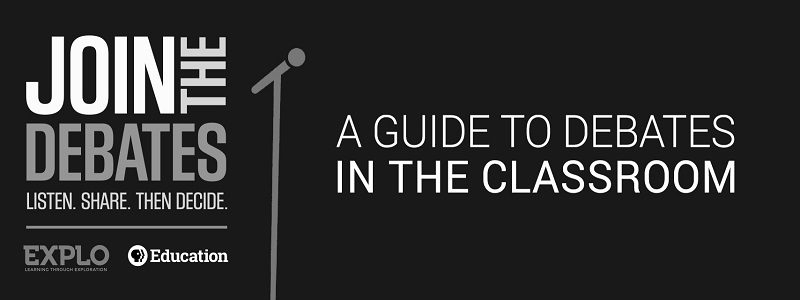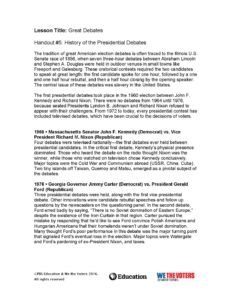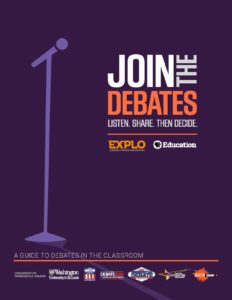
Review of PBS Learning Media Election Central Resources
PBS Learning Media just posted its 2016 Presidential Debates curricular resources.
Its collaboration with We the Voters (an advocacy group formed by persons in the media concerned with civic and voter engagement, especially among teens and young adults) emphasizes rhetorical techniques — e.g., ad hominem attacks, sowing doubt, false equivalency — debaters use to evade rigorous argumentation.
This is a realistic enough approach — presidential debates contain plentiful examples of these rhetorical moves — though our view is that learning about and identifying the fallacies and tricks of debating is helpful insofar as it leads students to become more attentive to the actual evidence-based argumentation and refutation that the candidates engage in, and to note their absence when they’re missing or deficient. Debate can be “gamed,” but we shouldn’t view gaming as equivalent to effective debating.
The instruments include a useful summary of the debates from recent historical election cycles, in case you’re teaching the presidential debates in a historical context this fall.

The video produced with this curriculum has a surprisingly flippant and off-color title, which we’ll let you discover for yourself.
PBS Learning Media also has a polished curricular resource titled Join the Debates, which is essentially a student-led seminar project they call the Collaborative Discussion Method.

This is a solid, well produced curricular project, though it doesn’t incorporate an explicit argumentation component, it doesn’t require student reading or research on the issues that it (very smartly) formulates, and it doesn’t include a tracking function during the discussion.
One thing it does include that is especially strong: a set of guidelines for when teachers should involve themselves in the discussion (and it is careful to say that student-led discussions are not absolute in their restrictions against teacher involvement). Those guidelines are reproduced below.
1. When a student comment could be deemed offensive
2. When misinformation has been shared and has not been challenged.
3. When the conversation is becoming personal and not substantive
4. When the discussion has derailed and needs re-starting
Hope that these links and materials are of interest to those teaching social science or civics.

